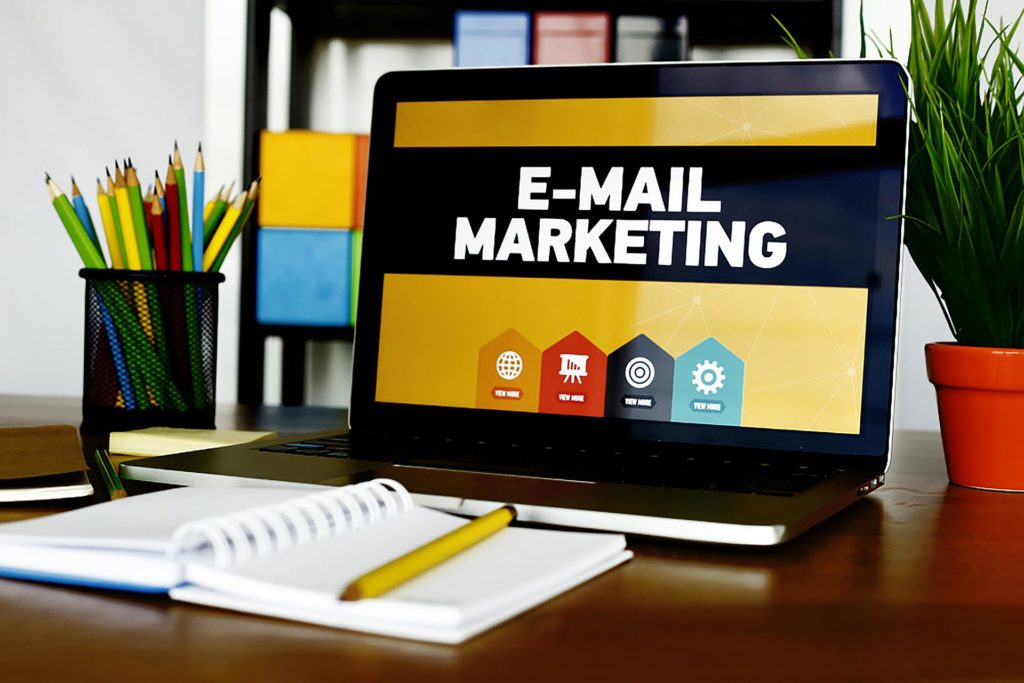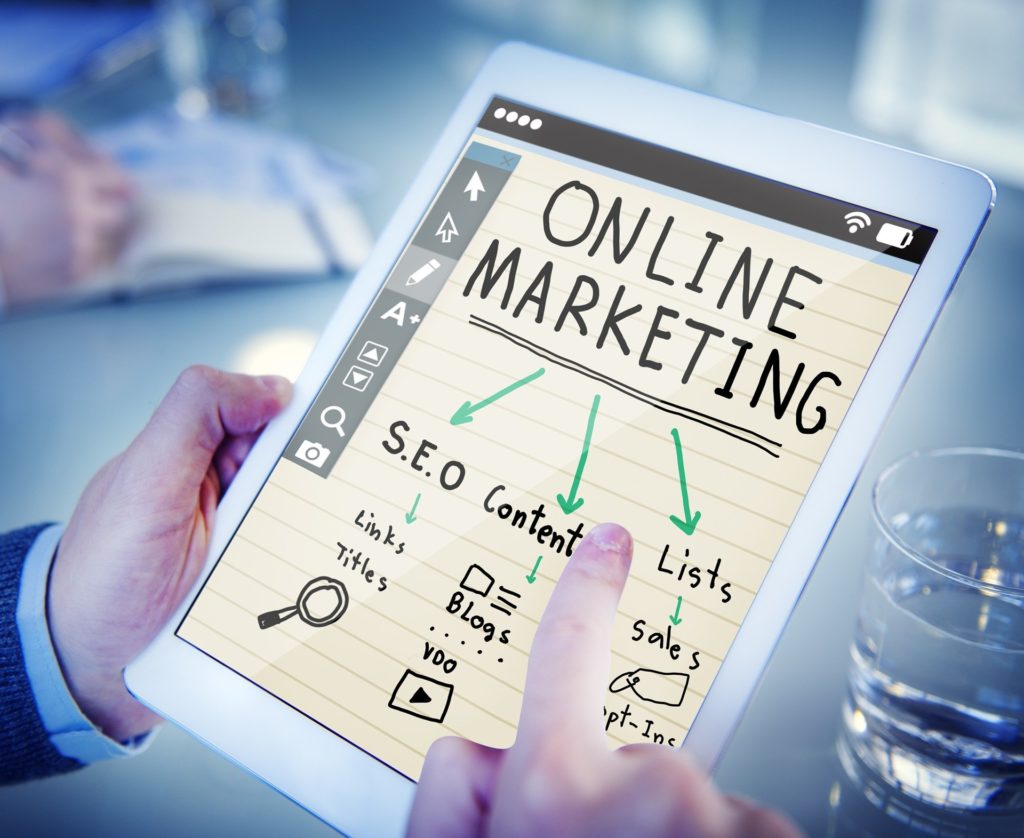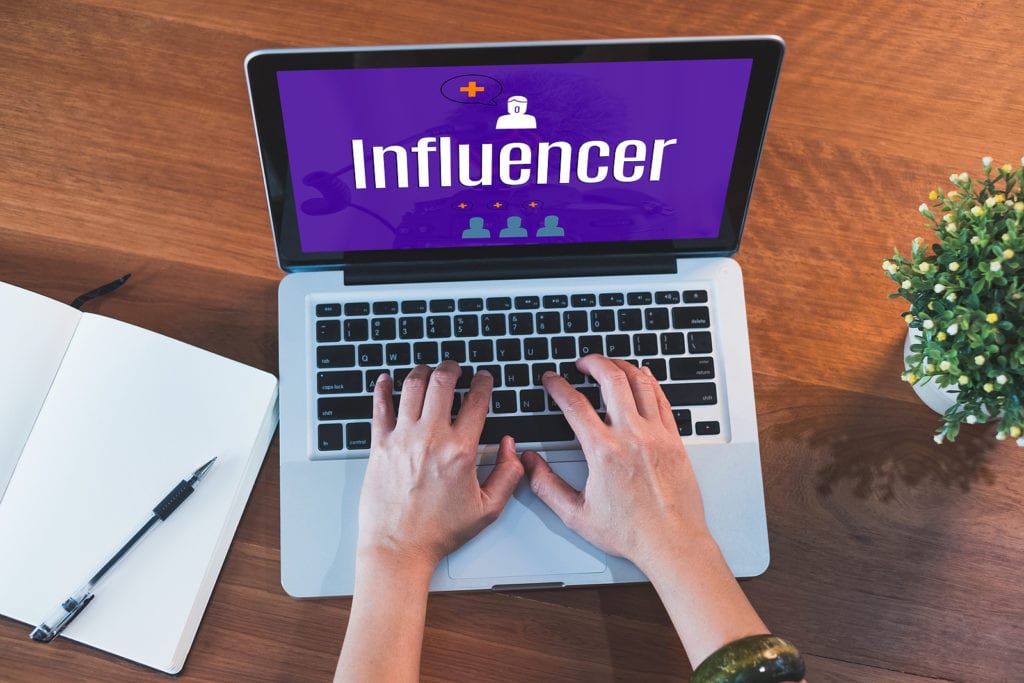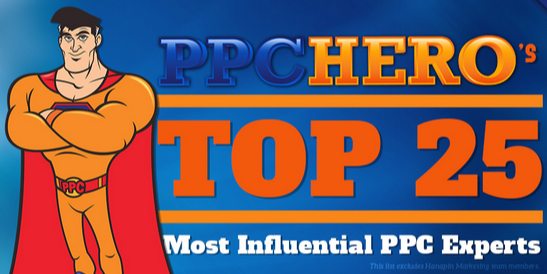Understanding the Different Types Of Online Marketing in 2023
As the business landscape continues to evolve, it has become increasingly important for companies to adopt innovative and effective marketing strategies to stay ahead of the curve. Digital marketing has emerged as the go-to platform for businesses to connect and engage with their clientele, and in 2023, the competition is only set to grow fiercer.
With the increasing number of internet users, it is imperative for businesses to understand the different types of online marketing techniques available and how they can be leveraged to meet their objectives. Successful online marketing campaigns can help businesses build brand awareness, drive more traffic to their websites, and ultimately, increase sales and profits.
In this article, we will explore the various types of online marketing strategies that businesses can use to elevate their marketing efforts in 2023.
From search engine optimization (SEO) to social media campaigns, email marketing, pay-per-click (PPC) advertising, online advertising methods, and more, we will provide you with valuable insights, tips, and tricks to help you create an effective digital marketing campaign.

Search Engine Optimization (SEO)
Search Engine Optimization (SEO) is a critical component of any digital marketing strategy. It involves optimizing your website to rank higher on search engine results pages (SERP) for targeted keywords and phrases, which can drive more traffic to your site. By achieving higher rankings on search engines, you can improve your chances of reaching potential customers who are searching for the products or services you offer.
Effective SEO involves a range of techniques, including keyword research, on-page optimization, and link building. Keyword research involves identifying the search terms and phrases that your target audience is using to find products or services like yours. By incorporating these keywords and phrases into your website content and metadata, you can improve your chances of ranking higher in search results.
On-page optimization involves optimizing your website’s content and structure to make it easily accessible to search engines. This can include optimizing headings, images, and page titles, as well as improving page load times and ensuring your website is mobile-friendly.
Link building involves building high-quality links to your website from other relevant and authoritative sites. This can help increase your website’s authority and improve your chances of ranking higher in search results.
Effective SEO Strategies
To create an effective SEO strategy, it’s important to start with a solid foundation of keyword research and on-page optimization. This should involve identifying the keywords and phrases that are most relevant to your business and incorporating them into your website’s content and metadata.
From there, you can focus on building high-quality links to your website from other relevant and authoritative sites. This can involve outreach to other websites in your industry, as well as creating high-quality content that others will want to link to.
It’s also important to stay up-to-date with the latest SEO trends and changes to search engine algorithms. This can help you stay ahead of the competition and ensure that your website continues to rank well in search results.

Social Media Marketing Campaigns
Social media platforms have become an integral part of digital marketing strategies. With over 3.8 billion active social media users worldwide, it is essential for businesses to leverage these platforms to engage their target audience and build brand awareness.
The key to a successful social media marketing campaign is to understand the platform your target audience uses the most and create content tailored for that platform. The most popular social media platforms for marketing include Facebook, Instagram, Twitter, LinkedIn, and TikTok.
To create an effective social media marketing campaign, start by defining your target audience and your campaign goals. Then, develop a content strategy that resonates with your audience and aligns with your campaign goals. This could include posting regular updates, sharing engaging videos and images, and hosting contests or giveaways.
When creating content for social media, it’s important to keep in mind the platform’s algorithms and best practices. For example, on Instagram, using relevant hashtags and posting at peak times can increase engagement levels. On Twitter, sharing bite-sized updates and using visuals can help your content stand out.
Finally, it’s important to track and analyze the performance of your social media marketing campaign. Use the platform’s built-in analytics or third-party tools to monitor engagement levels, track your reach, and measure the effectiveness of your campaign.

Content Marketing Strategies
Content marketing is a core component of any digital marketing strategy. It involves creating and sharing valuable, relevant, and consistent content to attract and retain a clearly defined audience and ultimately drive profitable customer action.
There are various types of content used in marketing, including blog posts, videos, infographics, e-books, case studies, and more. The key is to create high-quality content that resonates with your target audience and aligns with your brand messaging.
When creating a content marketing strategy, consider the following tips:
Define Your Target Audience
Before you start creating content, you need to define your target audience. Who are they? What are their pain points? What information are they looking for? Understanding your audience will help you create content that is valuable and relevant to them.
Create a Content Calendar
A content calendar is a schedule of when and what content will be published. This helps you stay organized and ensures that your content is consistent and timely. When creating a content calendar, consider peak times for your audience, holidays, and upcoming events.
Use Keyword Research
Keyword research is the process of identifying keywords and phrases that your audience is searching for online. By incorporating these keywords into your content, you increase the likelihood of your content being found by your target audience.
Promote Your Content
Creating great content is only half the battle. You also need to promote it. Use social media, email marketing, and other online channels to share your content and reach a wider audience.
By following these tips, you can create an effective content marketing strategy that drives engagement and conversions.

Email Marketing Campaigns
Email marketing is a crucial part of any digital marketing strategy, allowing businesses to communicate directly with their customers and clients via email. By sending targeted, personalized messages, businesses can build relationships with their customers and drive sales.
When creating an email marketing campaign, there are several key elements to consider, including:
- Email List: Building and growing an email list is essential to any successful email marketing campaign. This can be done through lead magnets such as free resources or exclusive discounts, as well as by asking customers to opt-in during the checkout process.
- Subject Line: A compelling subject line is crucial to getting your emails opened and read. Keep it concise and attention-grabbing, and avoid using spam trigger words.
- Content: The content of your emails should be engaging and relevant to your audience. This can include promotional offers, helpful tips and resources, or updates about your business.
- Call to Action: Every email should include a clear call-to-action, whether it’s to make a purchase, download a resource, or sign up for a webinar.
In addition to these elements, it’s also important to segment your email list and personalize your messages based on the recipient’s interests and behaviors. This can lead to higher open and click-through rates, and ultimately, more conversions.

Pay-Per-Click Advertising
Pay-per-click (PPC) advertising is a form of online advertising where advertisers pay each time a user clicks on one of their ads. It is a highly effective way to drive traffic to your website and increase sales.
There are several platforms that offer PPC advertising, including Google Ads, Facebook Ads, and more. Each platform has its own unique features, and it’s important to understand the differences when creating your PPC campaign.
To create an effective PPC advertising campaign, start by defining your target audience and selecting the right keywords. Your ad copy should be attention-grabbing and relevant to the user’s search query. Additionally, your landing page should be optimized for conversion with a clear call to action.
It’s also important to continually monitor and optimize your PPC campaign to ensure maximum ROI. Use analytics tools to track your campaign’s performance and make adjustments as needed.

Social Media Marketing Campaigns
Social media has become one of the most important channels for online marketing.
With billions of active users, social media platforms such as Facebook, Instagram, and Twitter offer businesses the opportunity to reach their target audience, engage with customers, and build brand awareness.
To create a successful social media marketing campaign, it’s important to understand the various social media platforms and their unique features.
| Social Media Platform | Key Features |
|---|---|
| Offers a wide range of advertising options, including sponsored content, display ads, and retargeting. | |
| Focuses on visual content, making it ideal for businesses in industries such as fashion, beauty, and travel. | |
| Enables businesses to engage with customers in real-time through tweets, hashtags, and direct messages. |
When creating a social media marketing campaign, it’s important to define your objectives, target audience, and key metrics for success.
To engage your audience, you should create high-quality content that is relevant and interesting. This includes images, videos, and written content that speaks to your target audience’s needs and interests.
In addition to organic social media content, businesses can also use social media advertising to reach a larger audience and drive conversions.
By understanding the nuances of each social media platform and tailoring your content to your audience’s interests, businesses can create effective social media marketing campaigns that build brand awareness and engage customers.

Online Advertising Methods
Online advertising is a powerful tool for businesses looking to expand their reach and connect with new customers. By utilizing targeted ads on various platforms, companies can increase brand awareness and drive traffic to their website. Here are some of the most effective online advertising methods:
| Display Ads | Retargeting | Native Advertising |
|---|---|---|
| What are display ads? Display ads are banner ads that appear on websites, typically at the top or side of the page. They are effective for building brand awareness and attracting new customers. | What is retargeting? Retargeting ads are targeted ads that appear to users who have previously visited your website. They are effective for bringing back potential customers who have shown interest in your products or services. | What is native advertising? Native advertising is a type of ad that blends in with the surrounding content, making it more appealing to consumers. This type of advertising is effective because it doesn’t disrupt the user experience. |
| What are the benefits of display ads? Display ads are effective for building brand awareness and attracting new customers. They can also be targeted to specific demographics, making them more effective at reaching your target audience. | What are the benefits of retargeting? Retargeting ads are effective for bringing back potential customers who have shown interest in your products or services. They can also be targeted to specific demographics, making them more effective at reaching your target audience. | What are the benefits of native advertising? Native advertising is effective because it doesn’t disrupt the user experience. It also tends to have higher click-through rates than traditional display ads. |
To create an effective online advertising campaign, it’s important to target your ads to the right audience. Use data analytics and metrics to track the success of your campaigns and make adjustments as needed. By utilizing online advertising methods, businesses can increase their online visibility and grow their customer base.

Mobile Marketing Strategies
Mobile marketing is a crucial aspect of any digital marketing strategy. With the majority of internet users accessing the web through their mobile devices, it’s important to optimize your marketing efforts for mobile platforms.
A successful mobile marketing campaign should include:
- A mobile-friendly website that is optimized for smaller screens
- A mobile app, if applicable
- Text message marketing
- Push notifications
- Location-based marketing
When creating a mobile marketing campaign, it’s important to consider the user experience. Your website and app should be easy to navigate and use on a mobile device. Your text message and push notifications should be targeted and provide value to the recipient.
Utilizing location-based marketing can also be effective. This involves targeting users based on their geographic location and offering promotions or discounts for nearby businesses.
Overall, a successful mobile marketing strategy can help increase engagement and conversions, as well as improve customer satisfaction and loyalty.

Influencer Marketing Techniques
Influencer marketing is a form of social media marketing that relies on endorsements and product mentions from individuals who have a dedicated social following and are considered experts in their respective fields. Here are some tips on how to find the right influencers for your brand:
- Research and identify influencers who align with your brand values and target audience.
- Create relationships with influencers by commenting on their posts and sharing their content.
- Offer incentives, such as free products or exclusive access to events, to entice influencers to promote your brand.
- Monitor and measure the effectiveness of your influencer campaigns to ensure maximum ROI.
When creating an influencer marketing campaign, it’s important to focus on authenticity and transparency. Partnering with influencers who genuinely believe in your brand and products will lead to more genuine endorsements and ultimately better results.

Analytics and Metrics
One of the most important aspects of any digital marketing strategy is the ability to track and analyze its success. This is where analytics and metrics come into play.
By using various tools such as Google Analytics, businesses can track the performance of their website, social media campaigns, email campaigns, and more. Analytics allow businesses to understand their audience better, track conversions, and identify areas for improvement.
Metrics, on the other hand, help businesses measure specific components of their marketing campaigns. Metrics can provide insights into the effectiveness of individual elements such as email open rates, click-through rates, social media engagement rates, and more.
How to track and measure your marketing campaigns
Here are some tips for tracking and measuring your marketing campaigns:
- Set clear goals and KPIs (key performance indicators) for each campaign.
- Use analytics tools to track the performance of your campaigns.
- Create reports and dashboards to monitor progress and identify areas for improvement.
- Use A/B testing to test various components of your campaigns and measure their impact.
The importance of analyzing your data
It’s not enough to just track your data. You also need to analyze it to make informed decisions and optimize your campaigns. Here are some key benefits of analyzing your data:
- Identify areas for improvement: By analyzing your data, you can identify areas of your campaigns that are not performing as well as they should be. This can help you make changes to improve their effectiveness.
- Understand your audience better: By analyzing your data, you can gain insights into your audience’s behavior, preferences, and interests. This can help you create more targeted and effective campaigns.
- Maximize your ROI: By analyzing the data from your campaigns, you can identify which elements are contributing the most to your ROI. This can help you optimize your campaigns to maximize their impact and ROI.
By tracking and analyzing your data, you can continuously improve your digital marketing campaigns and achieve greater success.
FAQ
Here are some frequently asked questions related to different types of online marketing:
What is digital marketing?
Digital marketing is the use of digital channels, such as search engines, social media, email, and other websites, to promote a product or service and reach a wider audience.
What are the different types of online marketing?
The different types of online marketing include search engine optimization (SEO), social media marketing, content marketing, email marketing, pay-per-click advertising, video marketing, online advertising, mobile marketing, and influencer marketing.
Which online marketing strategy is the most effective?
There is no single online marketing strategy that is the most effective. It depends on your business, target audience, and goals. It’s important to experiment with different strategies and evaluate their effectiveness.
How do I know if my online marketing strategy is working?
You can track the success of your online marketing strategy by setting goals and measuring key performance indicators (KPIs), such as website traffic, conversion rates, and engagement metrics. Use analytics tools to monitor your KPIs and adjust your strategy accordingly.
How much does online marketing cost?
The cost of online marketing varies depending on the strategy and platform you choose. Some strategies, like social media and content marketing, can be done for free with time and effort. Others, like pay-per-click advertising, require a budget for ad spend. It’s important to set a budget that aligns with your goals and track your ROI.
Where can I find resources to learn more about online marketing?
There are many resources available online to learn more about online marketing, including blogs, courses, and webinars. Some popular resources include HubSpot, Moz, and Google’s Digital Garage. It’s important to stay up-to-date with industry trends and best practices to stay ahead of the competition.
How can I get started with online marketing?
To get started with online marketing, define your goals and target audience, choose the strategies that align with those goals and audience, and create a plan to execute those strategies. It’s important to be patient and consistent with your efforts and continuously evaluate and adjust your strategy for optimal results.



